QuestionI have an older cat who has had upper respiratory problems off and on much of her life, some of which I expect are allergies. This winter she seems to be worse. I did take her to the vet a couple months ago, and they gave her a shot of steroids, and gave me some liquid antibiotics. But she is now sneezing, eyes watering again. I had seen on-line that some give Benadryl to their cats. So I bought children's liquid cherry Benadryl. The first time I gave it to her I gave her 1ml, but think I only got about half that down her as she gags to new smells easily. She soon started having alot of saliva drooling from her mouth. Alot. But that stopped after a while. The next day she seemed better, didn't sneeze, eyes were clear. But the second day her sneezing was coming back. I am concerned about giving her more Benadryl with that kind of reaction. Any suggestions or advice?
Thank you.
AnswerHi Susan. Hypersalivation like this can be the result of something that tastes really horrible, and cherry-flavored medicine is on that list for cats! If you're going to use Benadryl, I recommend using the tablets if she's of an average weight. A ten-pound cat can take a quarter of a 25mg tablet twice a day. For best results, coat it with a little bit of cold butter before administering to help it go down more easily. If your kitty is much smaller than ten pounds, it may be difficult to split the pill into eighths, which would be more appropriate for her size.
But your cat may not be suffering from allergies. It sounds possible she could be carrying feline herpes or calici virus, two serious upper respiratory viruses that are common in cats. Once infected, cats become carriers for life. The viruses can become dormant for a period and flare up throughout the cat's life. Both viruses have similar symptoms, including sneezing and eye discharge. Calici has a unique characteristic - it causes mouth sores, which lead to drooling. It may be possible this is what had your kitty salivating so much. You should try to have a look inside your kitty's mouth. Ulcers are typically found as depressions in the cat's tongue or red sores on the roof of the mouth. If you find any sores, she should see the vet again, as these tend to get infected. An antibiotic good for oral infections would be advisable.
Just in case it is viral, I would recommend placing your kitty on a lysine supplement. This is an amino acid that is necessary to build antibodies, so it's helpful in the fight against viral infections in general. Its benefit in the fight against feline herpes, in specific, is even greater, because it robs the virus of other amino acids it needs to replicate. You can purchase lysine supplements made especially for cats, such as Viralys or Enisyl-F products (search online for their gels, pastes, powders or cat treats). Or, you can use l-lysine you find at your pharmacy. The effective dose is 500mg daily for the average adult cat, preferably split into two doses. The tablets at the pharmacy are typically 1000mg. A half tablet or even quarter tablet is still huge, so you should grind this up and mix it into canned food (1/2 tablet once a day, or better yet, 1/4 tablet twice a day). You should see an improvement in 2-7 days in most cases. For cats who are chronic sufferers, like it seems yours may be, it's best to keep them on lysine permanently, every day. You could also try treating her with it until the symptoms have subsided for two weeks, and then stopping in the hopes that this has suppressed the flare up for a good while. But if symptoms return right away, this is a sign that the kitty is best to stay on the lysine long-term.
Best of luck!
Jessica

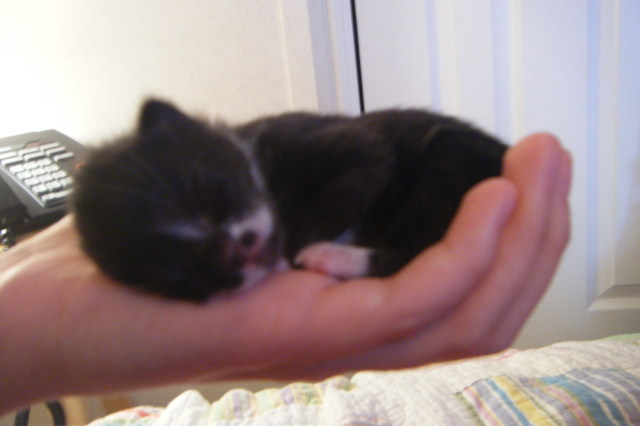 I think my kittens got into our horses oats (with seed hulls)
Question
Our newborn baby :)
Hi there,
My kittens are
I think my kittens got into our horses oats (with seed hulls)
Question
Our newborn baby :)
Hi there,
My kittens are
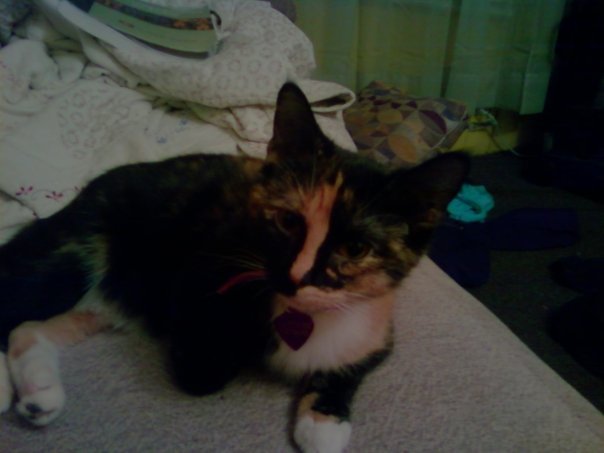 Female Cat changes behavior
Question
Patches
I have four older cats, a dog and now
Female Cat changes behavior
Question
Patches
I have four older cats, a dog and now
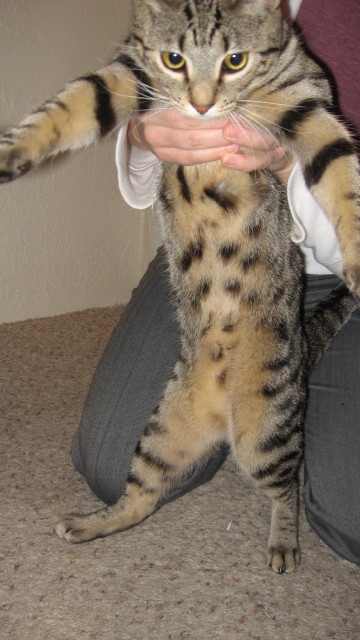 What breed is my cat?
QuestionBoots
QUESTION: Hi Norman, i was hoping
What breed is my cat?
QuestionBoots
QUESTION: Hi Norman, i was hoping
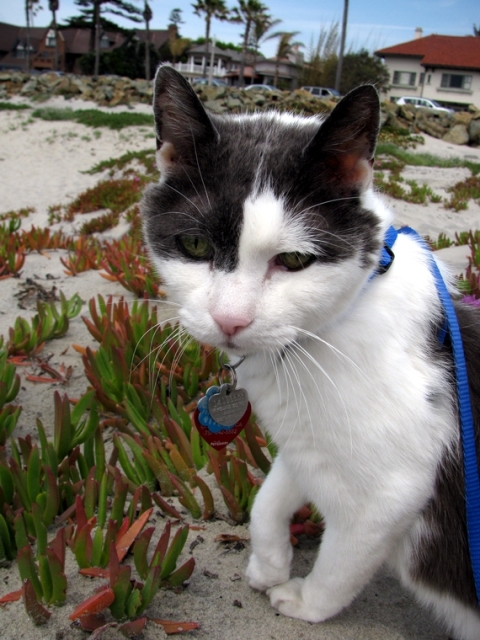 18 year old cat has blood clots in urine
Question
Tucker
My 18 year old male neutered cat is hyp
18 year old cat has blood clots in urine
Question
Tucker
My 18 year old male neutered cat is hyp
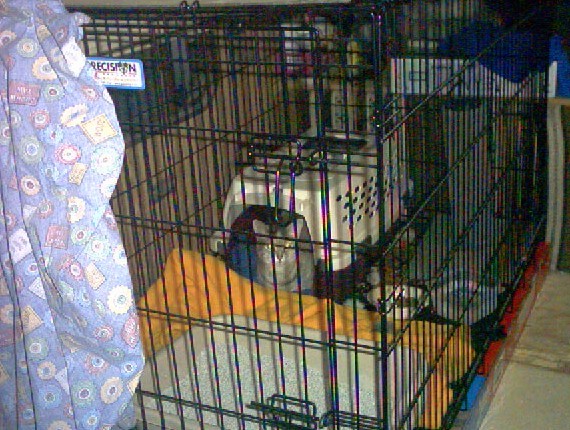 vacation house and taking cat
Questionour permanent home is on a 3 acre semi wooded p
vacation house and taking cat
Questionour permanent home is on a 3 acre semi wooded p